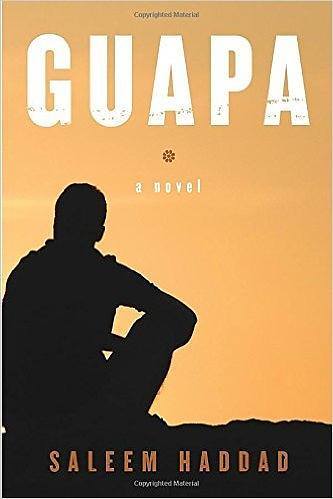If we had gay friends, it is easy to remember their misery of being closeted as recently as a generation ago—especially the agony of keeping one’s sexuality hidden from family. There are plenty of horror stories of outraged parents severing their ties with their children, disowning them, if they discovered they were gay. Younger readers of Saleem Haddad’s novel, Guapa, may have their eyes opened about how painful this situation was—for all parties, in fact. Older readers will sigh with the comfort of things being considerably different today, at least in the West. The author, born in Kuwait of parents of mixed heritage, was educated partly in Jordan. As an adult, he has worked in Yemen, Syria, and Iraq where he has clearly had to hide his sexual identity. Guapa, his first novel, scrapes the bone so closely that one cannot help concluding that the fictive veneer has barely disguised the author’s own experiences.
Early in the story, it’s a taxi driver who introduces an apt metaphor that encapsulates the main character’s situation. The morning after he has spent the night with his boyfriend, twenty-seven-year-old Rasa hails a taxi to take him to work. The traffic is awful, there’s been more terrorism in the city during the night, the radios in automobiles and in shops blast out governmental warnings: “Be watchful, be vigilant. Don’t trust anyone.” The taxi driver complains of his lot. It’s impossible to support one’s self in such an environment. He mutters to Rasa, “I drive this broken-down zift car around the city in this heat, and I get, what, five, may six customers. I end up spending more on petrol than I get from my customers. It’s like castrating donkeys…. You know why that is? It costs twice as much to clean yourself afterward than you get from doing the job.”
The taxi driver’s lament—about an unnamed post-Arab Spring country that might, in fact, be any one of several in the Middle East—reflects on the chaos of social and political breakdown, and the continual threat of terrorism that has rendered all lives tenuous at best. Everyone lives on the edge, but the added necessity to disguise one’s true identity cuts like the threat of the  castrator’s knife, rendering all relationships artificial. Teta, Rasa’s grandmother, has observed her grandson and his boyfriend, Taymour, the night before, sexually involved, and Rasa understands that his last refuge for his forbidden relationship has been exposed. He’s lived with Teta since his mother ran away and his father died. Suddenly, his homosexuality has been exposed, observed by the one person he could still consider family.
castrator’s knife, rendering all relationships artificial. Teta, Rasa’s grandmother, has observed her grandson and his boyfriend, Taymour, the night before, sexually involved, and Rasa understands that his last refuge for his forbidden relationship has been exposed. He’s lived with Teta since his mother ran away and his father died. Suddenly, his homosexuality has been exposed, observed by the one person he could still consider family.
The action takes place in less than twenty-four hours, beginning with Teta’s discovery of her grandson and Taymour. There are plenty of flashbacks to Rasa’s earlier years, especially his awareness that men interest him more than women and his own situation abruptly changing by the departure of his parents. Teta is a bit of a tyrant once she becomes his surrogate parent. Living with her is never easy, but she is all Rasa has. Navigating his differentness as a teenager is difficult, but once he goes to the United States for his higher education, the need to be so secretive is no longer so urgent.
However, in the United States right after 9/11, Rasa understands for the first time what it is to be an Arab, especially in the eyes of Westerners. His Arabness, he says, is foisted on him. “And so what did it mean to be Arab now, under America’s harsh gaze? What is Arab or Muslim if not a fabrication, one invented and reinvented by politicians who engineered meaning behind these words to suit their history? The American pundits screaming at each other on television seemed only too happy to play along in constructing this fiction.” Worse, day-to-date incidents expose him to the racism he has not experienced in America before 9/11.
It is perhaps no surprise that when he returns home, where once again he must remain closeted, Rasa’s anger also spills over to the Arab world. “I was angry. I was furious at the lost potential, at the millions of young people who have no opportunities because of structural impediments that ought to be challenged. I was angry about the lack of law and order. I was angry for myself, about my lost childhood spent navigating this confusing maze of chaos and loss. I was angry about my education, with its ancient and rigid teaching methods peppered with false truths and blatant lies, where the only goal was to make us forget how to criticize and ask challenging questions.”
Yes, Guapa is angry, but it’s an honest novel about navigating one’s self as a young gay man in what could obviously be much of the Arab world today. The title refers to a gay bar, one of the few places where Rasa can seek refuge from the bigoted environment around him. The author’s pain is palpable, his frustration and rage like that of a castrated donkey.
Saleem Haddad: Guapa
Other Press, 368 pp., $16.95